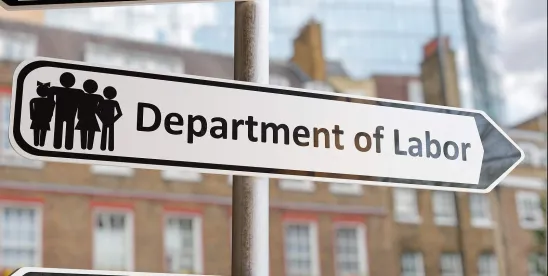The U.S. Department of Labor’s Final Rule raising the minimum salary level requirements for application of the Fair Labor Standards Act (FLSA) “white collar” exemptions is scheduled to take effect July 1, 2024. Lawsuits, however, have been filed seeking to invalidate and set aside the Final Rule and to block the increased salary thresholds from taking effect.
The Final Rule, released on April 23, increases the minimum salary requirements for the executive, administrative, and professional (EAP) exemptions from the FLSA’s minimum wage and overtime requirements in two stages. On July 1, the standard EAP salary threshold will rise from the current floor of $684 per week ($35,568 annually) to $844 per week ($43,888 annually). On January 1, 2025, the salary threshold would increase even more sharply, to $1,128 per week ($58,656 annually). The simplified exemption test for highly compensated employees will increase from $107,432 to $132,964 on July 1, and to $151,164 on January 1, 2025. The Final Rule also provides for automatic increases to the salary thresholds every three years, based on then-existing wage data, without first allowing an opportunity for public comment. (See “DOL Releases Final White-Collar Exemption Rule, Sets Minimum Salary to Increase in Phases Beginning July 1, 2024.”)
On May 22, 2024, a coalition of business groups filed suit challenging the Final Rule in the federal court for the Eastern District of Texas, a jurisdiction known to closely scrutinize federal agency rulemaking for potential over-reach. The case is Plano Chamber of Commerce v. U.S. Department of Labor. On June 3, the state of Texas sued in the same court. (State of Texas v. United States Department of Labor). The plaintiffs have asked the court to consolidate the cases, and the court has set a June 24 hearing on the plaintiffs’ motion for injunctive relief preventing the DOL from implementing the rule.
Also on June 3, a public interest law firm that focuses on challenging “unlawful administrative power” brought a complaint in another Texas district court. The suit was brought on behalf of a small business whose employees are currently overtime-exempt but will lose the exemption when the new salary floor takes effect. In that case, the court directed the plaintiff to file any motion for preliminary injunctive relief by June 12.
In each of the complaints, the plaintiffs argue that the DOL does not have statutory authority to raise the minimum salary level for the exemptions to apply, or to impose the automatic updates. They assert that the FLSA defines the EAP exemptions based solely on the duties that an employee “customarily and regularly” performs. Also, even if the DOL was granted such authority by Congress, they argue the agency exceeded its authority when it issued the Final Rule because the high salary level imposed in the rule — a 65 percent increase to the standard salary minimum — “categorically excludes” vast numbers of employees who perform exempt duties (and therefore should be classified as exempt under the FLSA). In addition, the plaintiffs contend that if Congress had granted such authority to the DOL, it was an unconstitutional delegation of power.





 />i
/>i

